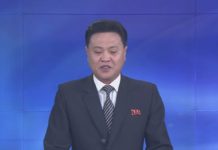The Malaysian economy remains healthy compared with its global peers, despite the rise in the country’s debt due to the deceleration of growth and a thinner current account surplus.
Franklin Templeton Investments Executive Director and Head Malaysia Fixed Income and Sukuk, Hanifah Hashim, said despite these challenges, the country’s economy had held steady on the back of the rapid fall in oil prices when compared to emerging market peers.
“The economy is still growing and the nation’s current account remains in the surplus, and debt levels are with no large foreign currency liability mismatch,” she said in a statement. She said there was also a sizeable cushion of international reserves, enough to cover over eight months of the country’s imports. “This is why the ringgit depreciation has not created debt solvency issues in Malaysia.
“There are also important and timely countermeasures that have been put in place, savings such as the implementation of Goods and Services Tax (GST),” she said.
However, Hanifah said that the market still viewed Malaysia cautiously, as negative news flooded the domestic front and continued to drive down sentiment and obscure rational analysis of the country’s economic position.
Therefore, it was crucial to look beyond the noise and concentrate on the economic fundamentals that may otherwise be missed, she said. “From a macroeconomic perspective, the government has shown fiscal discipline in narrowing the deficit from 7.0 percent in 2009 to 3.5 percent in 2014.
“It also continues to make progress by implementing prudent economic policy reforms such as the removal of the fuel subsidy, implementation of the GST and other spending cuts to achieve the deficit target of 3.2 percent of gross domestic product by end-2015 and to reduce it further to 3.1 percent in 2016 as announced in the budget,” she added. The global investment firm said Malaysia’s 2016 Budget showed continuous discipline to keep the country’s economic fundamentals in check with a focus on diversifying the country’s sources of revenue with less dependency on oil and strengthening fiscal balance sheet.
This is on the back of challenging market conditions driven by the prospect of rising interest rates in the United States, moderation of growth in China, market volatility in the emerging markets, weaker oil prices and currencies in the emerging markets, as well as issues on the domestic front.












